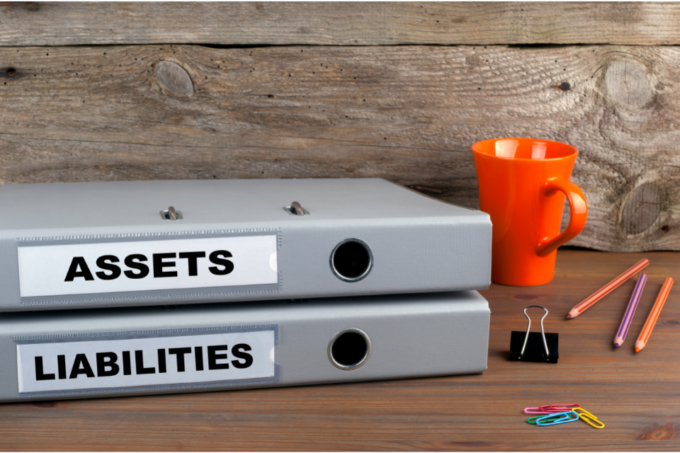Every business owner needs to have accounting knowledge to solve financial problems easily. If you cannot handle the financial issues of your company, then you need to hire an accountant who can manage all the tasks.
Anyone who has just started their business may not afford an accountant. In such a case, you must know some basic accounting concepts so you can do easy account jobs yourself. When your business starts growing, it is easy for you to hire an accountant, and you can focus on other things.
The following write-up will discuss various accounting tips that every small-scale organization owner needs to know. While running a company, you may face many challenges and desire to handle them alone. In every situation, you must be calm and know how to deal with them. When it is about accounting, learn some concepts, and solve your problems.
1. Understanding Credit and Debit Details

Source: cnbc.com
It is necessary to add all the company transactions. The account will have both credit as well as debit-based transactions. It will affect your balance of the account. It is necessary to understand different account types, i.e., liabilities, expenses, assets, etc.
The account balance can either be enhanced or decreased. You can understand better by a simple example, i.e., the debit-based transaction will enhance the current balance available in the asset account type.
2. Account Balance Chart
Anyone who desires to understand the crucial thing about accounting, then you must understand the account charts. It is considered a standard ledger that includes an entry list regarding the transactions.
If you desire to manage all the expenses and earnings of your company, then you must build an accounting chart. Managing bookkeeping and payroll data is necessary their Through bookkeeping and payroll services by whistlervalleybusiness.com, a small business owner can easily manage financial data and accounts of the company.
3. Understanding the Cash Method in Accounting

Source: investopedia.com
When you develop the account chart, you must decide the perfect accounting method your company will use. You will prefer this technique if you are a sole proprietor or freelancer.
It is a method in which you can maintain cash records whenever you receive any amount and spend money on anything. It helps manage the account balance you receive and pay weekly or monthly. It is a small chart that requires a daily update to maintain the account history.
4. Understanding the Accrual technique in Accounting
This technique is perfect for the person who has staff working for his company. In this method, you can easily record the details of earnings and salary. The transaction detail will be added only when it happens.
There will be no record if the client gives the check or shares any bill. This method gives you a perfect picture of your expenses and earnings. With time, you can easily manage the records. But it is challenging if you desire to handle the cash flow of your organization.
5. Know About Assets and Liabilities

Source: deskera.com
It is a kind of value that a small-scale organization owner owns. It may include cash balance in the account, income, receivable amount, furniture, property, supplies, etc. This type of value is intangible. But liability is considered a value a company owes.
You can also call it payable balances. One can consider loans, current owed money that you desire to give to your clients, etc. Through these terms, you can easily define business expenses and calculate annual company income.
6. Aging
The aging concept is present in both payable and receivable types of accounts. It is a perfect way to manage money coming and going out from a company. If you talk about payable aging, then you can check out the bill, which includes owing suppliers as well as vendors. You can also track the due dates and get alerts to make any payment.
The receivable aging includes similar information on consumer payments that is currently outstanding. It provides alerts about late payments of any customer. If your small company is connected to multiple vendors and customers, these aging reports are quite helpful in getting information regarding late and due payments.
7. Expenses

Source: inc.com
Whatever your company needs to pay to anyone is considered expenses. It can be the salary of the staff or paying the energy bill. Every business has certain expenses that need to be done within a specific period.
You can also create and manage the expense report that helps you to track all your company’s expenses. In this way, you can also take care of the monthly budget so that you can manage unnecessary expenses.
8. Revenue
You will receive money for your services when you run a business and fulfill contracts with different clients. The term revenue is used to define the money that you get from your client. You can calculate it by your annual sales. Your company earns an income after selling products and services to multiple clients.
Understanding the difference between revenue and income is necessary, as it can be a bit confusing. You can create separate reports to calculate the total revenue of your company. In this way, you can easily estimate the profits and losses of your business.
Final Thoughts
Every business owner must understand basic accounting concepts before starting the venture. There are a lot of things that an owner needs to handle. In the beginning, it is challenging to afford an accountant. At that time, your accounting skills will help you manage all the basic finance tasks. When your company grows, you can hire a person for account tasks later.
With complete knowledge, you can regulate the work of your accountant and know whether he is working perfectly for your company or not. All the mentioned accounting concepts are a necessity for every small company owner. You must invest your time learning these things and develop better strategies to run your business. If you know how to manage the budget, you will not face any financial issues in the future.







